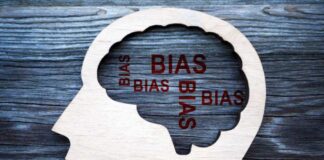Unsurprisingly, Americans have hit their breaking point. After repeated lockdowns, unnecessary face diapers, and jobs being taken away without warning, it’s not surprising that people are one mistake away from completely losing it.
American Psychological Association’s 2022 Stress in America Survey shows that violence and crime as well as the current political and racial climates are great sources of stress for a majority of us. Yet, economic stress dwarfed all of those. With 83 percent of respondents reporting inflation as a great source of their stress things aren’t boding well for the rest of 2023 and 2024.
With the current political climate and global tension, trade routes and the economy are not likely to improve any time soon. This means a recession is more than likely in the coming year.
The Conference Board, a non-profit research group, has pegged the likelihood at 99 percent in the next 12 months. The National Bureau of Economic Research’s models are coming in at 67 percent. Bankrate says 64 percent and even the ever-optimistic Wall Street Journal is at 61 percent.
No matter how you see the situation, we are heading for a recession. Truly the only questions at this point are about when it will hit, how hard it will hit, what sectors will get hit the worst, and how the American people will respond to it.
So far, the responses to inflation and other problems have not helped pull the economy back out of the toilet. In fact, the higher the stress, the worse the economy performs. A new piece by National Public Radio titled “The Economics of Financial Stress” takes aim at this very theory. With economists Dmitriy Sergeyev of Bocconi University in Milan, Italy, and Chen Lian and Yuriy Gorodnichenko of the University of California, Berkeley working together, the paper shows great promise.
In their survey of 10,000 employed Americans, they got a nice spectrum of the gender, age, region, household income, and education level of modern America. They asked them about their current financial situation, as well as what they would do in various scenarios if certain conditions occurred in their lives. With this data, they discovered the people broke down into two specific groups.
On the one hand, you have the financial sophisticates. This group knows that financial stress can make a mess of future income, and they try to limit it. They prepare for these problems with savvy savings, and they prepare for the future. On the other hand, you have the financial naïfs. This group doesn’t take financial stress into account when they do things. They spend as usual and are impervious to the whims of the financial sector. With little to no savings, this group does not prepare for inflation or a recession.
All in all, it was the naïfs who were the most prevalent in the survey, with ¾ of the respondents falling into this category. Being married, having kids, and having more debt also means having more financial stress. Given the financial illiteracy that plagues the American population, this figure is not surprising in the least. With our unwillingness to learn and change our ways going forward, things aren’t looking good.
This less financially educated majority tends to spend more when stressed. These impulse purchases quickly add up and force their already meager (if even existent) savings to plummet even further, and then they have an even harder time making up for their sudden need to spend more.
As the report states, this trend continues, and we plunge even further down the rabbit hole. “Financial stress drains valuable time and cognition from productive work. Because financial stress affects her performance, a stressed worker may face a lower chance of being promoted to a higher-salary job and a higher chance of being demoted to a lower-salary job. Financial stress can also lead to worse economic decisions.”
If we want to fix the economy, we need to stop stressing about finances. Unfortunately, it’s not like when your heart goes BRRRRRR from having aspirin with coffee, and ignoring it so it can resolve itself is a good idea. Instead, we must avoid this stress by taking the proper steps to secure our future now.



















